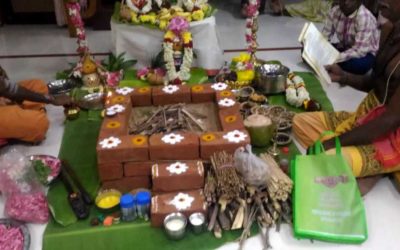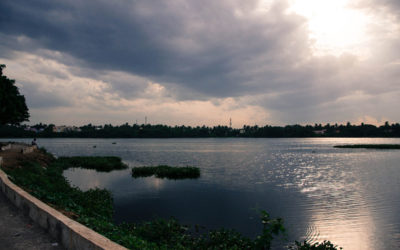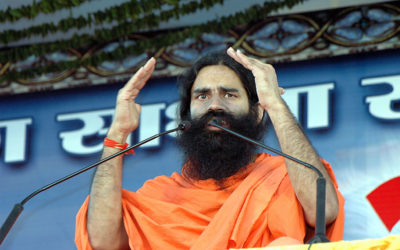A high alert was also sounded in Gujarat after Pakistan National Security Adviser (NSA) Nasir Khan Janjua communicated to his Indian counterpart Ajit Doval about the terrorist infiltration.
Intelligence provided by Pakistan’s National Security Advisor of a possible 26/11-style fidayeen assault on religious sites and processions in Gujarat during Maha Shivratri celebrations on Monday and Tuesday led authorities to order a massive mobilisation of state police personnel and National Security Guard (NSG) units, a top government official familiar with the matter has told The Indian Express.
The unprecedented intelligence warning did not contain specific details on the jihadist group involved, or information that could lead police to perpetrators, the source said. However, he said “there was enough credible sourcing for the matter to be taken very seriously”.
Lieutenant-General Naseer Janjua conveyed the warning to his Indian counterpart, Ajit Doval, on Saturday, following which NSG special forces were deployed to Gujarat to back up state police.
India, a diplomat said, believes the intelligence was provided “to pre-empt a potential crisis in bilateral relations, even war”. “Lots of pressure has been mounted by India and the United States, and perhaps it is paying off,” said the source.
#GujaratTerrorAlert: Additional SRP personnel deployed to check identity proof in Narmada @IndianExpress pic.twitter.com/Ekteok3HJ0
— Aditi Raja (@aditijf) March 6, 2016
#GujaratTerrorAlert: Security beefed at Sardar Sarovar Narmada Dam and Statue of Unity, Narmada – which is on terror hitlist @IndianExpress
— Aditi Raja (@aditijf) March 6, 2016
#GujaratTerrorAlert: Kheda police fire at car evading check in high-speed chase. Youth injured as bullet pierces through door @IndianExpress
— Aditi Raja (@aditijf) March 6, 2016
#GujaratTerrorAlert: The incident occurred in wee hours near sensitive Dakor temple, Kheda during police combing. @IndianExpress
— Aditi Raja (@aditijf) March 6, 2016
#GujaratTerrorAlert: 4 youths tried to run over police, booked for attempt to murder, assault and rash driving. @IndianExpress
— Aditi Raja (@aditijf) March 6, 2016
Jihadist blogs in Pakistan, interestingly, have been speculating for several weeks that India and Pakistan have been sharing intelligence to target al-Qaeda in the Indian Subcontinent, with one article even alleging that Janjua conveyed information that allowed India to shut down a terror cell in December.Earlier this month, Prime Minister Nawaz Sharif’s foreign affairs advisor, Sartaj Aziz, also admitted that one of the three phone numbers used by the terrorists who attacked the Indian Air Force base in Pathankot had been traced to the Jaish-e-Muhammad’s headquarters in Bahawalpur.
However, although Pakistan has shut down Facebook pages and websites linked to the Jaish, the Bahawalpur seminary remains open. None of the organisation’s key officials are known to have been arrested either.
Fears of an attack in Gujarat have been mounting over the last four months, sparked by the discovery of five abandoned fishing boats in Harami Nullah, a channel that snakes along the India-Pakistan border before emptying into the Vianbari Creek. The fifth boat was discovered by the Border Security Force (BSF) just last month.
BSF officials believe the boats were most likely used by traffickers, rather than terrorists, but noted that their movement across the border without detection raised fears about security.
The BSF’s border surveillance operations, one officer said, has been severely hampered by the lack of air support, after the sole helicopter available crashed in Rajasthan.
Islamabad’s decision to pass on the intelligence emerged from multiple rounds of meetings between Doval and Janjua, after they first met in Paris last November. The two agreed, at a meeting in Bangkok the next month, to resume diplomatic engagement between the two countries, but continued to maintain a one-to-one channel on terrorism-related issues.
The intelligence on the possible attack in Gujarat is just the second exchange of its kind between the two countries, coming over a decade after India’s Research and Analysis Wing (R&AW) passed on the contents of intercepted phone calls warning of a December 15, 2003 assassination attempt on Pakistan’s then President, General Pervez Musharraf.
In the summer of 2003, then R&AW chief C D Sahay and his counterpart at the Inter-Services Intelligence Directorate, Lieutenant-General Ehsan-ul-Haq, were tasked with working out a deal to restore peace on the Line of Control, by addressing India’s concerns on cross-border infiltration into Jammu and Kashmir.
The dialogue was ordered by then Prime Minister A B Vajpayee and General Pervez Musharraf, when they decided to resume diplomatic engagement in the wake of the 2001-2002 military crisis.
Haq and Sahay met several times in third countries, hammering out the contours of the unwritten ceasefire that went into place on the LoC in December 2003, allowing India to fence-off infiltration routes.
Less than a fortnight before that ceasefire, breakaway Jaish-e-Muhammad operatives attempted to assassinate Musharraf by detonating a bomb as he crossed the Nullah Lai outside Rawalpindi. R&AW passed on intercepted telephone communication predicting the attack, said a highly-placed source.
Haq later called up Sahay to pass on a message of thanks from Musharraf, according to the source.
Later, in 2006, the two countries set up a Joint Anti-Terrorism Institutional Mechanism to “implement counter-terrorism initiatives and investigations”. However, the mechanism did not result in any sharing of usable intelligence or prosecutions, and collapsed after the 26/11 attacks.
Following 26/11, Pakistan’s then President Asif Ali Zardari called for the creation of a system to ensure “timely information and intelligence sharing between the two counties to prevent any incident of terrorism”. His call was later backed by former intelligence chiefs from both countries.
Even earlier, the two governments used secret channels in attempts to resolve tensions. In 1987, then Prime Minister Rajiv Gandhi despatched then R&AW chief A K Verma to a secret meeting in Switzerland with his Pakistani counterpart, Lieutenant-General Hamid Gul. The two men discussed means to defuse the risk of war caused by Pakistani support to the Khalistan insurgency.
Source: Pakistan NSA warned Ajit Doval of 26/11-type hit on Maha Shivratri | The Indian Express




0 Comments